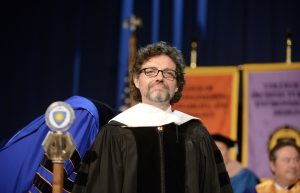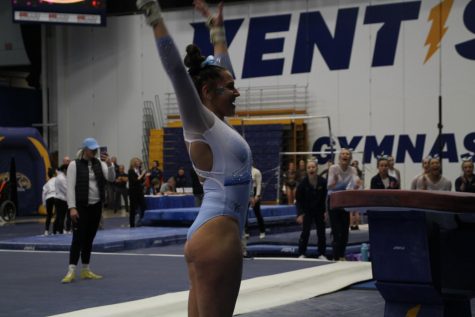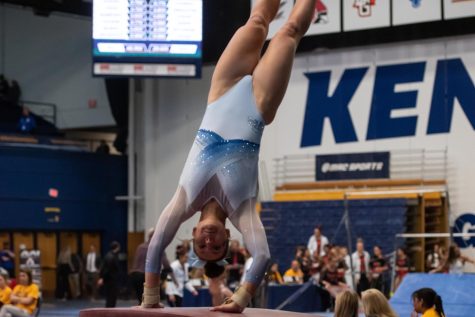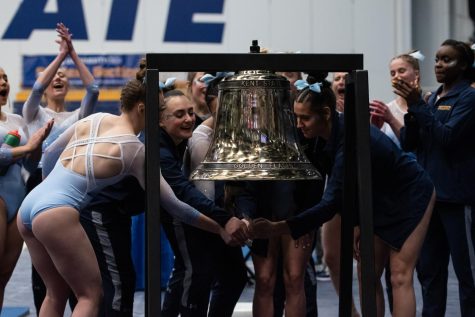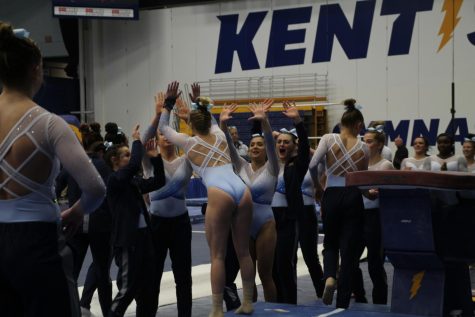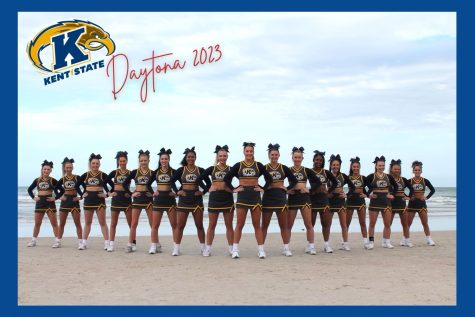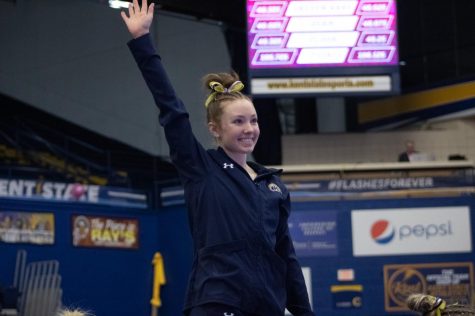Olympic training, Kent State-style
February 23, 2010
With the Winter Olympics competition in full swing, many students may be inspired by the caliber and excellence of the athletes performing.
“Those athletes push their bodies and their sports beyond normal limits, ” said Eddie Olschansky, junior electronic communications major and avid snowboarder. “Those are the best athletes in the world. Anyone interested in improving can take notes from Olympians, no matter what the sport.”
The workout routines and skill training that goes into reaching an Olympic level can be exhausting and overwhelming, but there are workouts that can help the everyday athlete improve their game even in Olympic sports.
“It’s huge to have a good workout in order to improve at a sport,” said personal trainer Ben Cope. “When you have someone working to improve at a certain sport, I recommend more sport specific training, which means helping them to mimic and improve at the skills they’re doing when competing.”
Many athletes find that simply participating in their sport is enough of a workout to improve.
“Personally, I think just practicing is the way to go,” Olschansky said. “You don’t have to be the strongest person in the world to ride well, and the strength you need in the legs you gain from practicing.”
Cope said he does not necessarily disagree with this method but believes training can definitely do more to improve an athlete in most sports than just consistent skill practice.
“I can do a sport over and over and over again and you’re going to get better skill wise, but when you want to work on something like say your leaping ability, you’re only going to get so much better while playing,” Cope said. “I would take that person and do plyometrics with them over a six-month period and do a lot of band work with them. You take what they do in a game and making them stronger, quicker and faster at that specific thing.”
Sometimes workouts used to improve at a specific sport can be out of the ordinary or even out of season.
“I run a lot to improve in ski cross,” said Kevin Stone, sophomore organizational communication and German translation major. “There are several other drills I know for off-season fitness, but I’m not good at going to the gym.”
Even Olympic athletes seek off-season and alternative drills to improve at sports, Cope said, and they have no choice but to get to the gym.
“The skiers that do a lot of flips and even skiers that do jumps use a lot of gymnastics skills,” Cope said. “They do a lot of trampoline work and indoor training with foam pits to mimic what they are actually doing on skis.”
Many athletes, no matter their training level, just enjoy improving their skills and participating in their sports, despite how much work it takes.
“My goal is to just have fun, to progress and to never let snowboarding become a chore,” Olschansky said. “To become the best rider you can be that is what progression is all about.”
Contact Student Recreation and Wellness Center reporter Amanda Klitsch at [email protected].









